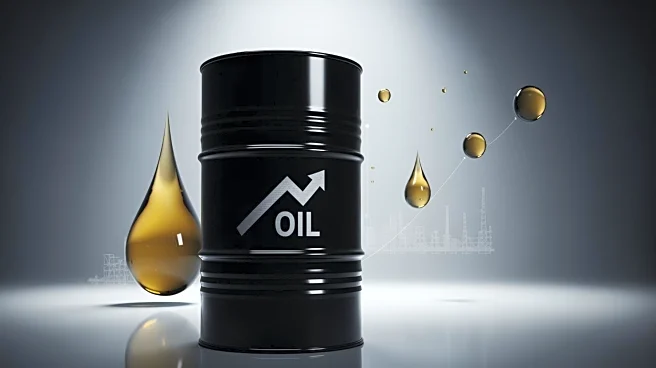What's Happening?
Oil prices increased on Tuesday as investors weighed the impact of US sanctions on Russian oil against concerns of oversupply. Brent crude futures rose by 1.1% to $64.73 a barrel, while US West Texas Intermediate crude reached $60.78 a barrel. The sanctions have
led to restricted fuel exports, affecting crude oil and refined fuel markets. Lukoil declared force majeure at an Iraqi oilfield, marking a significant fallout from the sanctions. Despite the price rise, oversupply worries persist, with OPEC+ agreeing to increase output targets but pausing further increases in the first quarter of next year.
Why It's Important?
The US sanctions on Russian oil are influencing global oil markets, affecting prices and supply dynamics. The sanctions have led to restricted exports, impacting European diesel and gasoline profit margins. However, concerns about oversupply continue to limit price increases. OPEC+'s decision to adjust output targets reflects the delicate balance between managing supply and maintaining market stability. The situation underscores the geopolitical complexities of oil markets and the potential economic implications for countries reliant on oil exports and imports, as well as industries dependent on stable oil prices.
What's Next?
The oil market faces potential oversupply in the coming year, with OPEC+ considering further production adjustments after the first quarter pause. The impact of US sanctions on Russian oil exports will continue to be monitored, influencing market dynamics and investor strategies. Additionally, the resolution of the US government shutdown could provide broader market support. Stakeholders, including oil producers and consumers, will need to navigate the evolving landscape, balancing geopolitical risks with economic considerations to ensure stability and growth in the energy sector.
















